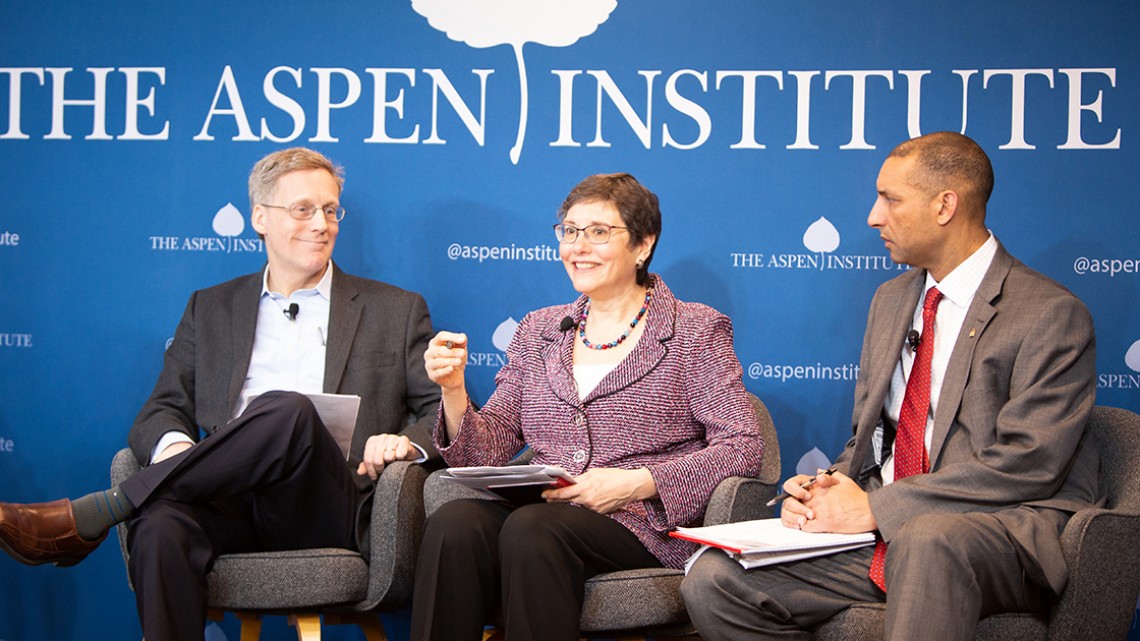
From left, Mark Muro, Brookings Institute senior fellow; Erica Groshen, ILR School visiting scholar; and Spencer Overton, president of the Joint Center for Political and Economic Studies, participate in a panel discussion April 3 in Washington, D.C.
ILR scholar discusses automation’s impact on workers
By Laura Carver
The proliferation of driverless vehicles could result in job losses of 1.3-2.3 billion by 2051, ILR School visiting senior scholar Erica Groshen said at an April 3 event in Washington, D.C., hosted by the Aspen Institute. It’s not all bad news, though, she said, stressing that policy can be designed to retrain and compensate affected workers.
Joining Groshen on the panel, “The Age of Automation: Policies for a Changing Economy,” were Mark Muro, senior fellow at the Brookings Institution, and Spencer Overton, president of the Joint Center for Political and Economic Studies. They discussed the economic and social implications of rapid technological advances in automation and put forward a case for policy preparedness.
Groshen, who is former commissioner of the U.S. Bureau of Labor Statistics, noted that job automation has serious financial consequences for displaced workers.
“The average displaced worker loses between one to three times their pre-displacement annual earnings as a part of their lifetime wealth. We’re talking in the case of automobile workers … about them losing between $80,000 and $120,000 of their lifetime wealth as a result of displacement,” she said.
Groshen estimates that, in total, workers who lose their jobs as a result of driverless vehicles could sustain $200 billion to $300 billion in lost income.
There are also substantial benefits to switching to autonomous vehicles, which could result in up to $800 billion per year in economic growth, reduction in driving-related accidents and death, and increased mobility for those unable to drive, Groshen said. However, in order for workers to reap the benefits of this economic growth, effective policy must be put in place to ameliorate the loss of jobs and income.
“The fear is not that jobs go away forever. The fear is that the losses, which are very concentrated on a number of workers whose jobs change dramatically, are very high. These losses are not compensated,” she said. “We have huge benefits, but these benefits accrue to different people, and they accrue later than the losses are incurred.”
She stressed that losses for workers are not an inevitability.
“The peak impact is about 2045. We have time,” she said. “It’s employer decisions and policy that determines the outcome for the workers, not the technology. The technology isn’t what hurts workers, it’s the lack of policy, it’s the kind of decisions employers make.”
Laura Carver is a writer for the ILR Communications and Marketing Department.
Media Contact
Get Cornell news delivered right to your inbox.
Subscribe
